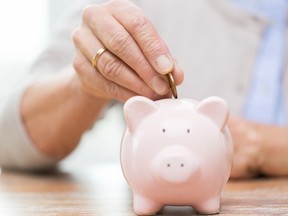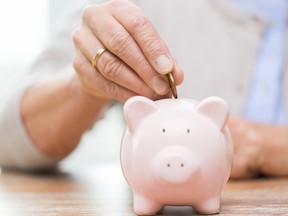On Nov. 21, 2024, the Canadian government announced a new $250 rebate, as well as plans to scrap the GST on certain products over the holidays. Here’s what to know.

Article content
On Thursday, the Canadian government announced a new $250 rebate, as well as plans to scrap the GST and HST on certain products over the holidays.
Here’s what to know about the Working Canadians rebate and the holiday tax break:
What’s the Working Canadians rebate?
The federal government announced on Nov. 21 that a new rebate, called the Working Canadians rebate, would be delivered by early spring 2025. This rebate is meant to put money back in Canadians’ pockets while the cost of living remains high.
Advertisement 2
Article content
How much is the rebate?
The Working Canadians rebate is $250.
Who’s eligible for the Working Canadians rebate?
To be eligible for the rebate, you must:
• Have worked in 2023 and earned an individual net income less than $150,000.
• Have filed your 2023 tax return by the end of 2024 and claimed certain credits.
• Be a Canadian resident as of March 31, 2025.
• Not be incarcerated for at least 90 days before April 1, 2025.
The federal government estimates a total of 18.7 million Canadians are eligible to receive the rebate.
When and how will I get my $250 rebate?
The rebates are expected to land by early spring 2025, but no specific date has been given.
Those who are eligible will receive their rebate by direct deposit, if you’re already set up for it with the Canadian Revenue Agency, or you’ll receive a cheque in the mail.
You can log into your CRA account online to set up direct deposit.
What’s the holiday GST/HST tax break?
The federal government has also announced they’ll be temporarily suspending the goods and services tax and the harmonized sales tax for groceries and other holiday essentials this season. The move is being made to “help (Canadians) buy the things they need and save for the things they want.”
Article content
Advertisement 3
Article content
While the government is suspending the tax, it’s up to individual retailers to administer the tax break and remove it at the point of sale.
How long will the tax break last?
The tax break will begin on Dec. 14 and last until Feb. 15, 2025.
What products are included in the tax break?
During the two-month tax break, you won’t see GST or HST levied on the following items:
• Baby and children’s clothing, accessories and footwear.
• Diapers, both disposable and reusable, including training pants.
• Car seats including infant, convertible and booster seats that conform to Canadian safety standards.
• Print newspapers and books, including audiobooks and religious scripture.
• Christmas trees, both real and fake.
• Most groceries including prepared meals, food sold through catering services. (Excluding alcoholic spirits.)
• Most prepared meals sold at restaurants, coffee shops, takeout vendors, pubs, lunch counter, concession stands, mobile food trucks.
• Children’s toys designed for age 14 or younger including board games, puzzles, video game consoles, controllers and media.
Advertisement 4
Article content
What are people saying about the rebate?
Prime Minister Justin Trudeau: “Our government can’t set prices, but we can give Canadians, and especially working Canadians, more money back in their pocket. With a tax break for all Canadians and the Working Canadians Rebate, we’re making sure you can buy the things you need and save for the things you want.”
Finance Minister Chrystia Freeland: “The holiday season is when expenses are highest for many Canadians and their families — even with inflation back down to two per cent and interest rates being cut four times this year. With new tax relief on groceries and seasonal expenses and a rebate for working Canadians, we are reducing costs when they are highest for Canadians. This is about helping you celebrate with family and friends and start 2025 with a little extra money in your bank account.”
Steeve Mongrain, Simon Fraser University economics professor: “The $250 rebate will help Canadian taxpayers. It applies to individuals earning less than $150,000, which helps target those needing it more. Personally, I would have lowered that threshold to $100,000 or $80,000 to give a higher rebate. It is problematic that it excludes the most vulnerable individuals who are not tax-filers.”
Article content


Comments